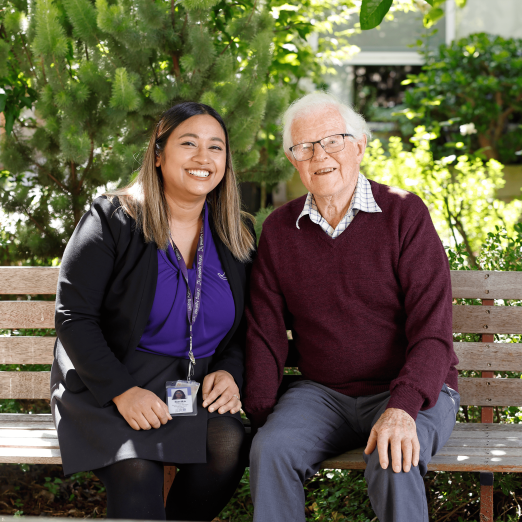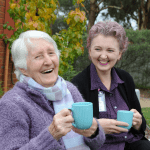News
There is choice in the end
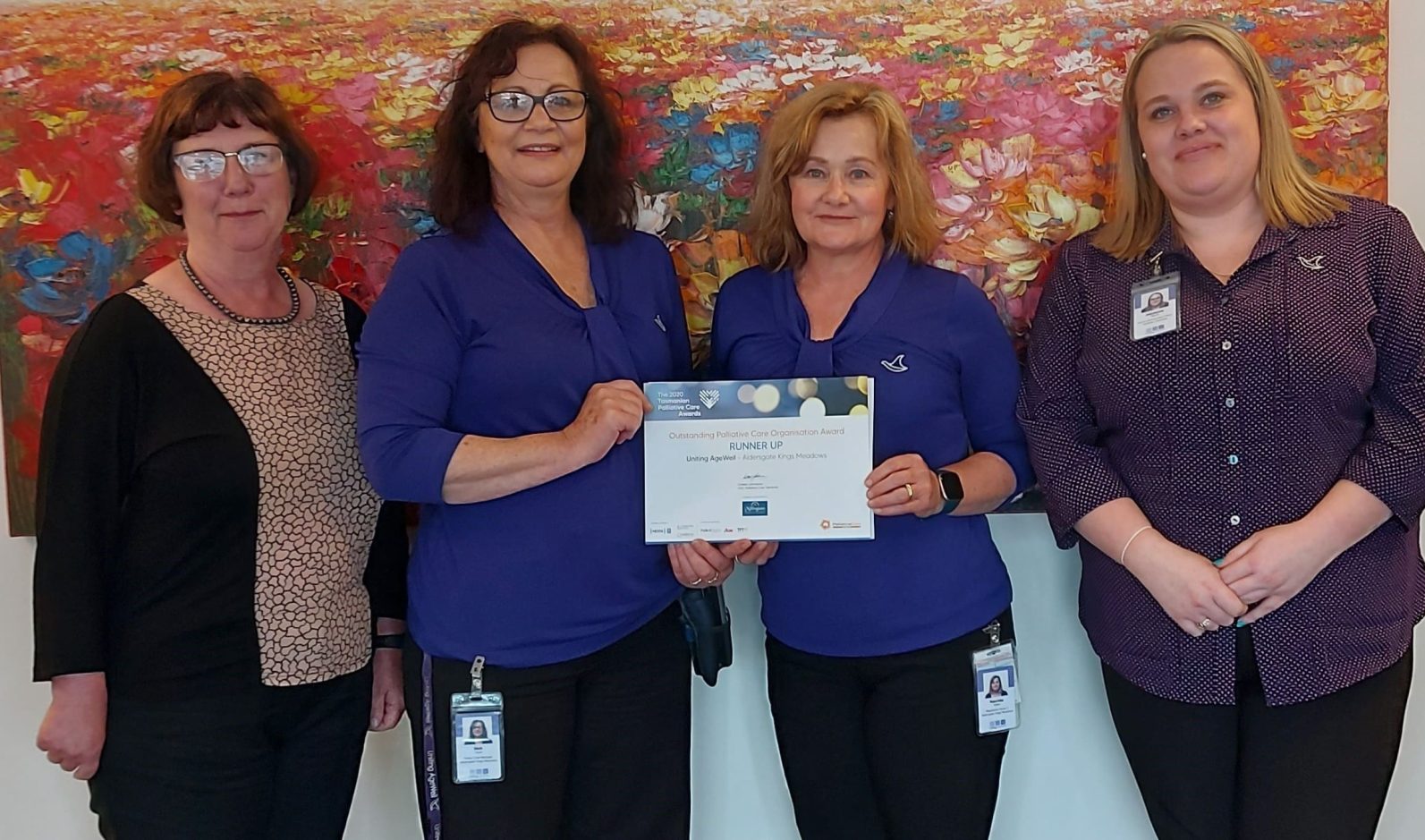
Organisational
During Palliative Care Week is a good time to consider your options.
And it is also an appropriate time to shine a spotlight on the raft of innovative measures that Uniting AgeWell is implementing when it comes to palliative care, dying and death.
Most residential facilities in Victoria and Tasmania have their own committee on palliative care services a new program on ensuring that no one needs to die alone is underway Noble Park Community the Guard of Honour to farewell aged care residents who have died is providing huge comfort all round, and White Lily cafes to talk about death and discussions on dying are regularly held.
Kerry Whitlock, Uniting AgeWell’s Palliative Care Specialist- Quality says, “Feedback from families of loved ones who received palliative care is fantastic.”
All these initiatives are underpinned by the Uniting AgeWell model which places a strong emphasis on supporting clients to plan for end of life and to die well. AgeWell Palliate focuses on providing dignified end of life care in the setting of the person’s choice, honouring the spirit within. The holistic support encompasses physical, psychosocial and pastoral care according to the wishes and needs of each person and their family.
No one has to die alone (NODA)
This pilot program was successfully trialled at Uniting AgeWell Noble Park Community, and is now in place there. Volunteers are trained to become companions to maintain a bedside vigil to comfort the dying, so no one has to die alone. Kerry says feedback is positive, and learnings from this will be used.
She says while nurses continue to check on the resident at least every two hours during their final stages (which can last between 24 – 72 hours), it’s not possible for the nurse to sit at their bedside the whole time. Enter the volunteer – who will be specially trained to maintain a bedside vigil when the need arises. And the need is there.
Kerry says some older residents don’t have families, some families live far away or are unable to be there around the clock and need a few hours off. “Volunteers are trained to listen and be a comforting presence. To hold the dying person’s hand and to soothe them,” Kerry explains. The resident can request that music of their choice be played.
The nursing staff will still continue their regular checks to ensure the person’s pain levels are being managed. Kerry says the ideal is to have multi-language volunteers as someone may revert to their mother tongue at the end stage of life.
Palliative care training
Suezanne Horder, Uniting AgeWell Residential Services Manager Northern Tasmania, received an ELDAC grant which she used to implement palliative care training at Uniting AgeWell Kings Meadows Community Aldersgate.
This started four weeks before COVID-19 hit, and it is work in progress. It looks at not only educating staff in palliative care, but also in developing ongoing learning to ensure that these skills are maintained.
Suezanne and the team at Kings Meadows Community Aldersgate were runners-up in the prestigious Outstanding Palliative Care Organisation in the recent Palliative Care Tasmania awards last year!
Palliative Care Outcomes Collaborative (PCOC)
This new program is being trialed at Kings Meadows Community Aldersgate, Newnham Community Aldersgate Village and Sorell Community Ningana and is a national program that provides timely and evidenced-based care for residents and their families with palliative care needs.
Care of residents and their families is enhanced in a number of ways including using consistent language, helping clinicians in recognising deterioration in a resident and assessing the psychological health of the resident and their family/carers.
Guard of honour
Introduced nearly three years ago, the Guard of Honour is proving a huge comfort to residents, their families and staff across Uniting AgeWell’s Sorell Community Ningana and Noble Park Community.
The program was initiated by residents at Ningana, who said they wanted to leave the way they entered the home – through the front door. And in style! As undertakers take them out, they are giving a rousing farewell by other residents, families and staff. Sometimes there are flowers, or a framed phot on display, often music is played.
The program was developed by Ningana’s Palliative Comfort Care Committee – and has proved so rewarding it was showcased at the Palliative Care Nursing Association Conference in Brisbane in May last year.
Cafés and info sessions
Ningana also holds an annual White Lily Café series, where people come together to enjoy refreshments while talking about death.
Staff report that the café has a positive approach to supporting and normalising conversations around death.
Recent content
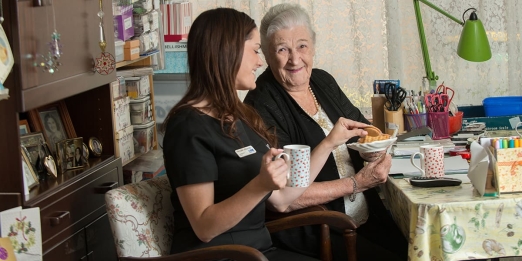
Providing care to regional seniors
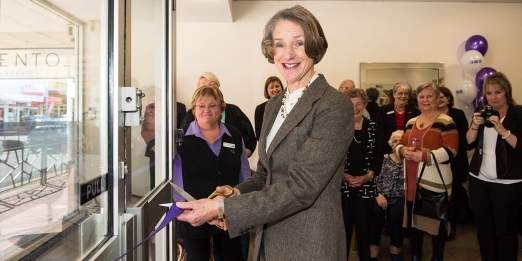
UA opens its first Community Hub
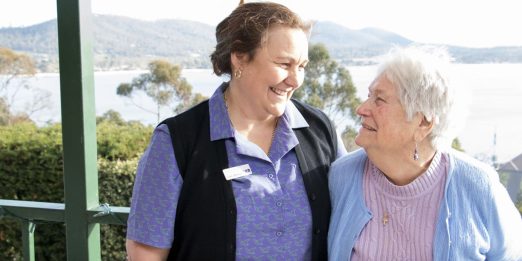
UA finalist in Tasmanian community awards
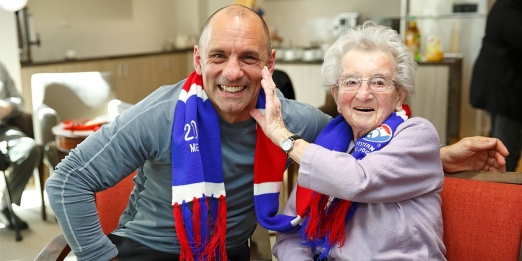
AFL legend Tony Liberatore visits Amarco
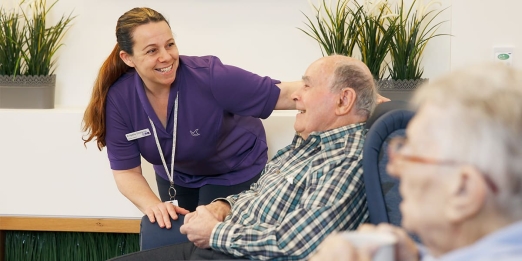
Help halt Federal Government cuts to aged care

Agewell Sunday Worship Resource
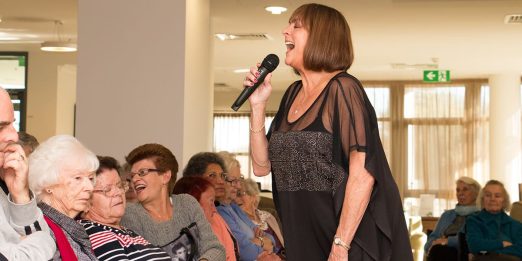
Denise Drysdale a smash hit at Amarco
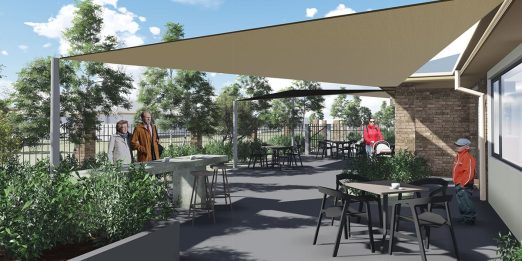
A glimpse into Manor Lakes
